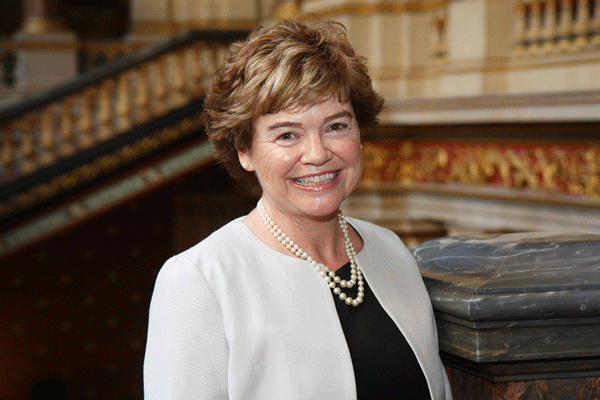
Can Zimbabwe really represent an opportunity? It sounds like a crazy thing to be arguing.
The Mark Chavunduka Column by Catriona Lang
The figures are grim. The Zimbabwe Congress of Trade Unions says 2 000 jobs were lost in the first six months of 2017 in the formal sector.
That must be only a fraction of the number of job losses in the informal sector.
I believe that despite what we all know are gloomy forecasts for the immediate future, Zimbabwe does represent an opportunity. That opportunity — and opportunity is a forward-looking word — lies in Zimbabwe’s real wealth: its people.
I believe in creative innovation paving the way for a better future. We’ve seen it work that way in Britain.
Entrepreneur Mark Pearson grew up in a council flat in the city of Liverpool and watched his mother and grandmother struggle to put food on the table.
In 2006, he started a website grouping together discount coupons for restaurant meals, clothes and gifts.
- Chamisa under fire over US$120K donation
- Mavhunga puts DeMbare into Chibuku quarterfinals
- Pension funds bet on Cabora Bassa oilfields
- Councils defy govt fire tender directive
Keep Reading
That myvouchercodes.co.uk website led Pearson to become one of the UK’s most inspiring young multi-millionaires. He sold his business for £55 million in 2014.
I want to tell you some stories to prove how ordinary, brilliant Zimbabweans have created their own opportunities, often in the face of a very tough operating environment.
Ethel Kuuya’s success is one that can challenge and inspire other Zimbabweans. She founded Advisory K in 2014.
It uses big data analytics to build better businesses in Zimbabwe.
Advisory K announced last month that it had reached more than 160 000 customers through its customer analytics centre — and that it had saved $10 million through organisational restructuring.
Innovator Munyaradzi Gwatidzo has a back-story that is far from glittering on the face of it. CNN says he was an orphan who grew up in a poor suburb of Zimbabwe.
He used to fish broken phones out of piles of rubbish to fix them. He set up his Astro Mobile company in 2011.
Astro Mobile today is a commerce company with branches in five countries in the region.
Then there’s Clinton Mutambo, the Zimbabwean founder of esaja.com, a business to business platform that’s made its mark in more than 15 countries in Africa.
He is an entrepreneur who was named one of Forbes 30 under 30 in 2015.
The stories of innovation from Zimbabwe are truly exceptional. A delegation from CIPFA, the UK’s Chartered Institute of Public Finance and Accounting, was in Zimbabwe recently.
CIPFA works with Zimbabwe’s Public Accountants and Auditors Board under a UK-sponsored programme.
The CIPFA delegation came away very impressed — they felt that the Zimbabwean officials they had worked with were some of the best CIPFA had met in the region.
So what does all this say about the opportunity that Zimbabwe represents for the future?
First — that brilliance is often honed through challenge. I do not want to downplay the difficulties in Zimbabwe.
We have ongoing concerns about human rights and the respect for property rights here. Zimbabwe is one of the UK’s Human Rights Priority Countries, where we monitor human rights abuses and support programmes designed to make abuses less likely.
We believe that it is vital that necessary economic reforms are undertaken urgently, taking into account the advice of international financial institutions so as to prevent the people of Zimbabwe suffering more hardships.
We are actively engaged in aid projects to mitigate hardships: among many successes, we have helped 86 000 children gain a decent education and provided 1,4 million people with access to clean water.
But what I see time and time again is young Zimbabweans proving that they can and will keep on creating despite the difficulties.
This was so very obvious at the Queen’s Birthday Party event that we hosted at the embassy residence in June where we showcased the work of Takunda Chingonzoh.
Chingonzoh runs Tech Village, which provides a co-working space for young entrepreneurs and techpreneurs. Priscah and Simba Mufunde of The Maker Club were also at the Queen’s Birthday Party.
The Maker Club is an inspiring start-up that encourages children to explore science and technology and work on creative projects using Stem principles.
I believe that Zimbabwe’s youth will take this country forward.
In the future, with a leadership committed to political and economic reform and with the support of international partners, I believe Zimbabweans will be able to turn this nation’s advantages — its natural wealth, its potential to once again become a global tourism hub, its entrepreneurial spirit — into great opportunities.
Catriona Laing is the UK ambassador to Zimbabwe. * This is an extract from a speech she made at TheSpaceZw, an interactive public forum, in Harare recently.











